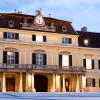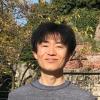
The Systemic Risk and Resilience Group in ASA will host this year's workshop on "Social Capital and Development Trends of Countryside in Knowledge and Risk Society".
Background and scope of the workshop
The emergence of a transformative, fluid, and reconstructive world driven by global urbanization, often referred to as the "post-urban world," is nothing but a major challenge to the survival of many countryside areas. Specific challenges facing the peripheral countryside include depopulation, aging, regional deprivation, spatial sprawl, community fragmentation, climate change and disasters, economic recession, and degradation of natural resources and environments, just to mention a few risks. Each of these issues presents a fundamental "crisis" that threatens to undermine the sustainability of the region at its very foundations.
In such an era of crisis, the survival of rural areas depends critically on their self-sustaining capacity to adapt to changing circumstances while demonstrating their own unique value and attractiveness through collaboration and learning by various actors, including residents. In this context, social capital, the key concept of this workshop, is of significance for the autonomous growth of rural communities: It is one of the essential factors in encouraging regional innovation to address local crises by bringing together knowledge and skills dispersed throughout the region through collaboration with stakeholders inside and outside the region.
This workshop will bring together researchers from a variety of disciplines for an open discussion on the prospects and challenges of the countryside. We recognize the need for this workshop to promote a broad discussion from a variety of perspectives on issues such as;
- How must the concept and role of social capital be redefined in today's society under technological progress, climate change, and diversification of values and risks?
- How can local knowledge and smartness address diverse regional issues and improve regional resilience and sustainability?
- Do we need to rethink the nature of academic disciplines, or the way researchers interact with their local communities? If so, what kind of research and approaches are needed?
This workshop series started 19 years ago, and participants have been interested and discussed various topics such as (but not limited to):
- Social Capital
- Sustainable Management of Natural Assets, Landscape, and Commons
- Community Governance
- Voluntarism, Partnership, and Local Engagement
- Multiple Risks and Resilience
- Climate Change and its Threats and Opportunities for the Countryside
- Tourism, Cultural Experience, and Local Development
- Rural-Urban Relationship and Interaction
- Compact City, Smart Village, and Their Infrastructure
- Innovation in Rural Regions and Knowledge Society
Workshop program
This year’s work is co-organized by MARG (Marginal Area Research Group) and Systemic Risk and Resilience Research Group, ASA, IIASA. The workshop program is attached below.
From IIASA, Reinhard Mechler (SYRR) will give a speech in the opening session, Michael Kuhn (EF) will chair the session “Economic Evaluation”, and six staff members will make the following research presentations:
Elena Rovenskaya (ASA) "Unpacking a Multidimensional National Well-Being System" (Research with Nikita Strelkovskii and Rotem Zelingher)
Ha Vu (EF) "Impact of Dams on Salinity Intrusion and Agricultural Productivity: Evidence from Mekong River"
Jung Hee Hyun (SYRR) "Empirical Insights from a Global Inventory of Community-level, Disaster Resilience-Building Interventions: Assessing Narratives to Capture Impact" (Research with Stefan Velev, Reinhard Mechlar, and Stefan Hochrainer-Stigler)
Martin Hofer (NODES) "Leveraging Web-Scraped Data to Analyze Tourism Destinations and Flows in Rural Areas" (Research with Ian McCallum)
Omkar S Patange (EF) "A Decentralized Energy Governance Framework to Improve Rural Energy Access"
Muneta Yokomatsu (SYRR) "A Nonlinear Dynamic Model of Opportunity-Based Learning in Disaster Time and Knowledge Formation" (and chairs the session “Knowledge and Development”.)
Please find the detailed event program here.
If you are interested, please visit the Wodak room. Part-time participation is also very welcome.
We are looking forward to interdisciplinary encounters and discussions!
Upcoming Events
Potsdam Institute for Climate Impact Research (PIK) & Online
German IIASA Networking Event: "Systems analysis for a sustainable and peaceful future"
Groningen, The Netherlands
‘Towards Net-Zero through a Circular Economy: the consumer and business perspectives’ Stakeholder Workshop
Online and Austrian Academy of Sciences (Doktor-Ignaz-Seipel-Platz 2, Vienna)
Human Agency to Navigate the Anthropocene
Humboldt University of Berlin
